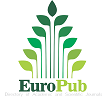Ethical criteria
-
Impartiality in publication, the editors are responsible for the decision to publish the manuscripts that the journal receives. Manuscripts will be evaluated impartially, fairly and without regard to the race, gender, sexual orientation, religious beliefs, ethnic origin, nationality or political beliefs of the authors. The decision to publish a manuscript will be based on its originality and clarity, as well as the validity of the study and its relevance for the purposes of the journal. Naturally, it will be taken into account that the work complies with legal requirements in relation to the good name of people and institutions, in relation to copyright and those related to plagiarism.
-
Confidentiality, neither the editors nor other members of the journal team, nor people who collaborate in its activities, should reveal any information about the manuscripts received to anyone other than the author or the evaluators, and always in the proportion due to compliance with the purposes of the proposed activity and with due prudence.
-
Conflicts of interest, unpublished materials that appear in the manuscripts received should not be used by the editors for their own research without first obtaining written authorization from the author.
-
Contribution to editorial decisions, peer arbitration helps editors in selecting manuscripts for publication, thus contributing to the decision to publish the articles that will be part of the journal, in addition to collaborating in improving their quality.
-
Diligence, any selected referee who does not feel capable of evaluating the assigned manuscript or who knows that he or she will not be able to perform the evaluation in a timely manner must notify the editor and refrain from the review process.
-
Confidentiality, the evaluators will carry out their task objectively. Personal criticism is excluded. It is the obligation of evaluators to express their judgments clearly and in a well-founded manner.
-
Objectivity criteria, evaluators will carry out their task objectively. Personal criticism is excluded. It is the obligation of the evaluators to express their judgments clearly and in a well-founded manne
-
Recognition of the sources, the referees must identify published works to which the manuscript refers that have not been cited by the authors in the corresponding bibliographic references section. They must also indicate those observations or arguments that appear in the manuscript and that do not are accompanied by their respective bibliographic source. The referee must also inform the editor of any substantial similarity or coincidence between the evaluated manuscript and any other publication of which he or she has personal knowledge.
-
Conflicts of interest, the information or ideas obtained through the privilege of evaluating the manuscripts must be kept confidential and, therefore, cannot be used for personal gain. Evaluators must refrain from judging manuscripts with which they have any conflict of interest derived from competitive, collaborative or other relationships, or derived from links with authors, institutions or companies related to the manuscripts.
-
Quality requirements, authors must carry out original research and present a clear and precise exposition of the work carried out, as well as an objective discussion of its importance. The data that supports the work must be clearly reflected in the manuscript. The manuscript must have well-detailed references so that it sufficiently allows other authors to reproduce the research and verify the results. Any false or intentionally inaccurate statement will be judged as an ethical breach and will be grounds for exclusion.
-
Research data, authors must be able to provide their research data along with the manuscript for the purposes of editorial evaluation. If necessary, they must also make said data public. In any case, it is understood that it is the researchers' obligation to make said data available to the scientific community, provided that the confidentiality of the participants is guaranteed and that there is no impairment of any institutional rights that may exist.
-
Originality and plagiarism, authors must ensure that they have written entirely original works, which they will make reference to the work of other authors through relevant citations.
-
Multiple or simultaneous publication, works that describe essentially the same research should not be published in more than one journal. Likewise, you should not send the same work to several journals either. All of this will be grounds for exclusion. Manuscripts that have already been published in other journals should not be submitted. Nor should the same manuscript be sent to another journal when it is in the evaluation period.
-
Withdrawal of the manuscript: if the manuscript is withdrawn after the peer review process has begun or after a favorable decision to publish has been received, this will be considered a breach of editorial ethics and will be subject to the penalties indicated in the authorship policy section.
-
Acknowledgment of sources, appropriate recognition of the work of others must always appear in manuscripts submitted to the journal. Authors must record the publications that have influenced the determination of the nature of the work presented.
-
Authorship of the article, must be limited to people who have contributed in an important way to the conception, preparation or interpretation of the work. All people who have done so must appear as co-authors. The principal investigator is obliged to ensure that only these people appear as co-authors and no others. Likewise, you are obliged to submit the latest version of the article for approval to the co-authors and obtain their authorization for publication.
-
Conflict of interest, authors must declare the sources of funding for their work and must try to avoid any conflict of interest that affects the results or the interpretation of their conclusions.
-
Fundamental errors in published articles, in the event that the author discovers important errors or inaccuracies in his published work, he has the duty to diligently inform the editors and collaborate in correcting or, where appropriate, rectifying them. published.






















 LIBRARY USAT
LIBRARY USAT